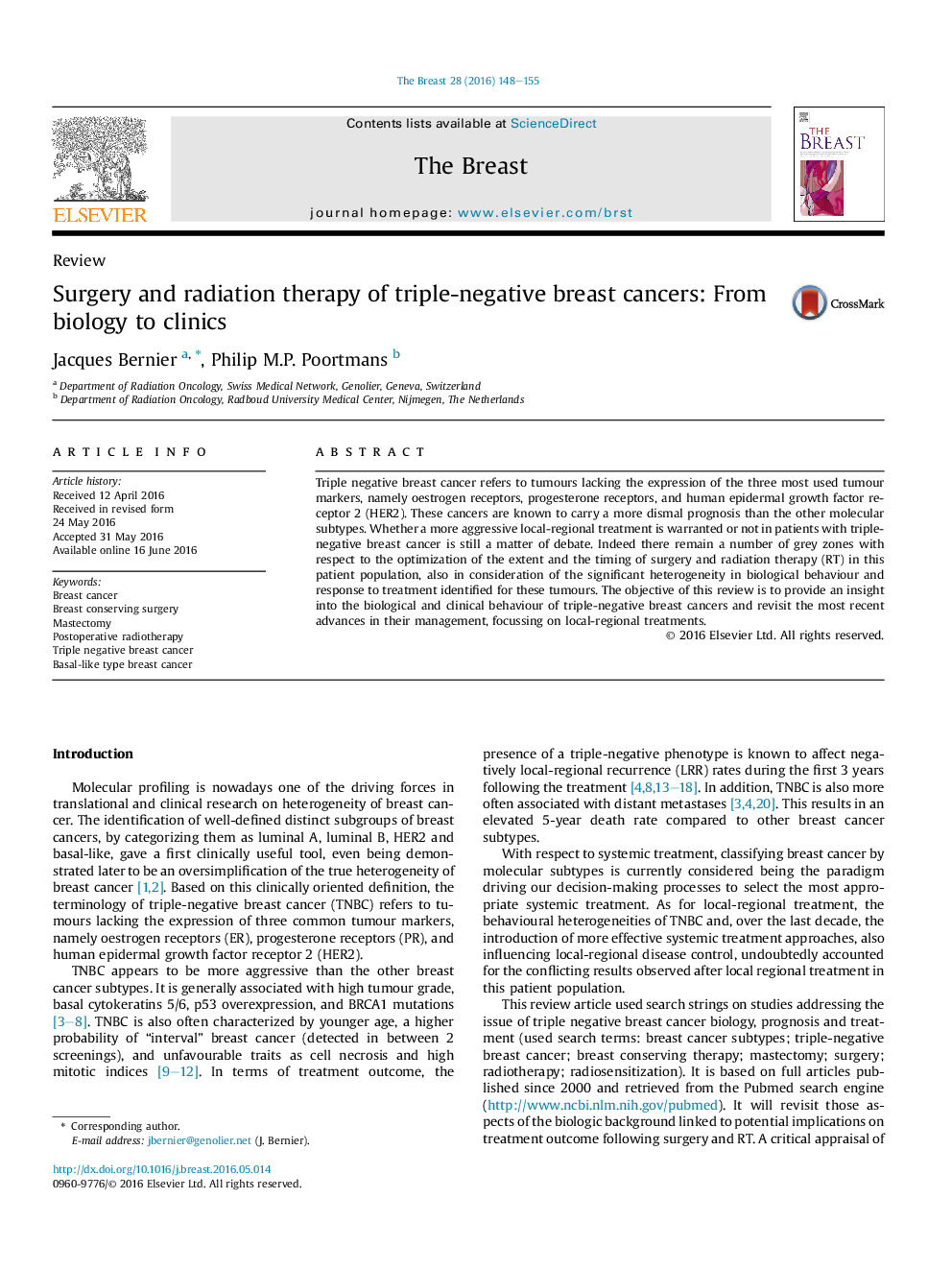| Article ID | Journal | Published Year | Pages | File Type |
|---|---|---|---|---|
| 6169529 | The Breast | 2016 | 8 Pages |
â¢Patients with triple negative breast cancer should not be encouraged to choose for mastectomy if they are eligible for breast conserving therapy.â¢Local-regional recurrence rates are lower after treatment including risk-adapted systemic therapy.â¢The indications for postoperative radiation therapy are similar to those for other breast cancer subtypes.â¢Research focussing on the combination of targeted and immunotherapy with systemic and radiation therapy should be encouraged.
Triple negative breast cancer refers to tumours lacking the expression of the three most used tumour markers, namely oestrogen receptors, progesterone receptors, and human epidermal growth factor receptor 2 (HER2). These cancers are known to carry a more dismal prognosis than the other molecular subtypes. Whether a more aggressive local-regional treatment is warranted or not in patients with triple-negative breast cancer is still a matter of debate. Indeed there remain a number of grey zones with respect to the optimization of the extent and the timing of surgery and radiation therapy (RT) in this patient population, also in consideration of the significant heterogeneity in biological behaviour and response to treatment identified for these tumours. The objective of this review is to provide an insight into the biological and clinical behaviour of triple-negative breast cancers and revisit the most recent advances in their management, focussing on local-regional treatments.
